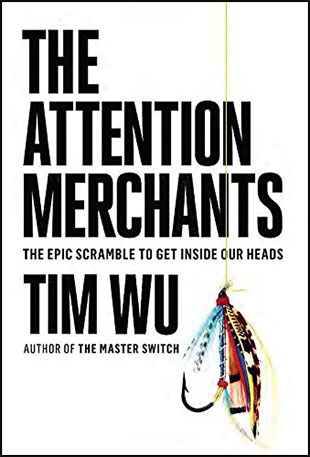"What is called for might be termed a human reclamation project. For comparison, consider the sort of effort undertaken to reclaim some (other) natural resource, as when returning the land under an abandoned parking lot to wilderness. Over the coming century, the most vital human resource in need of conservation and protection is likely to be our own consciousness and mental space. In practice, a movement might begin with individuals making incremental changes, ones as simple as setting aside blocks of time, like the weekend, to be spent beyond the reach of the attention merchants. The first stirrings can be seen in the existing practices of 'unplugging' or taking 'digital Sabbaths.' The same impulse can lead also to reclaiming more physical sanctuaries, not only the writer's backyard shed, but the classroom, the office, and the home, as well – any place where we mean to interact with one another or achieve something we know requires a serious level of concentration. In this way, the practice starts paying communal dividends as well as profiting the individual.
"While the goals of reclaiming our time and attention are easy to praise, they can prove surprisingly difficult to achieve. Even for a weekend, it can be painful to resist deeply ingrained habits like checking email, Facebook, and other social media; browsing random news stories, let along more titillating clickbait; or flopping on the couch to channel surf for a few hours. The difficulty reflects years of conditioning and the attention merchants' determination to maximize, by any means possible, the time spent with them. When engrossed in work, reading a book, or playing with children, we may as well be stealing by the attention merchants' lights. They want – need – us to be constantly poking around for dibs and dabs of their entertainment, to be tuned to commercial breaks in their programming, or to be catching up with friends in a manner than can also serve some branding effort.
"If any practical motivation were needed to work through the discomfort of reclaiming the attention that is one's own, it is useful to consider the accruing costs of our failure to do so. Whatever our personal goals, the things we'd like to achieve, the goals of the attention merchants are generally at odds with ours. How often have you sat down with a plan, say, to write an email or buy one thing online, only to find yourself, hours later, wondering what happened? And what are the costs to a society of an entire population conditioned to spend so much of their waking lives not in concentration and focus but rather in fragmentary awareness and subject to constant interruption? In this respect our lives have become the very opposite of those cultivated by the monastics, whether in the East or the West, whose aim was precisely to reap the fruits of deep and concentrated attention. What an irony it is that the lamentably scattered state of mind arises not from our own lack of drive but rather from the imperatives of one peculiar kind of commercial enterprise that is not even particularly profitable much of the time. The rest of the private sector may well have as much cause for complaint as the individual and society. It would no doubt be shocking to reckon the macroeconomic price of all our time spent with the attention merchants, if only to alert us to the drag on our own productivity quotient, the economist's measure of all our efforts."
